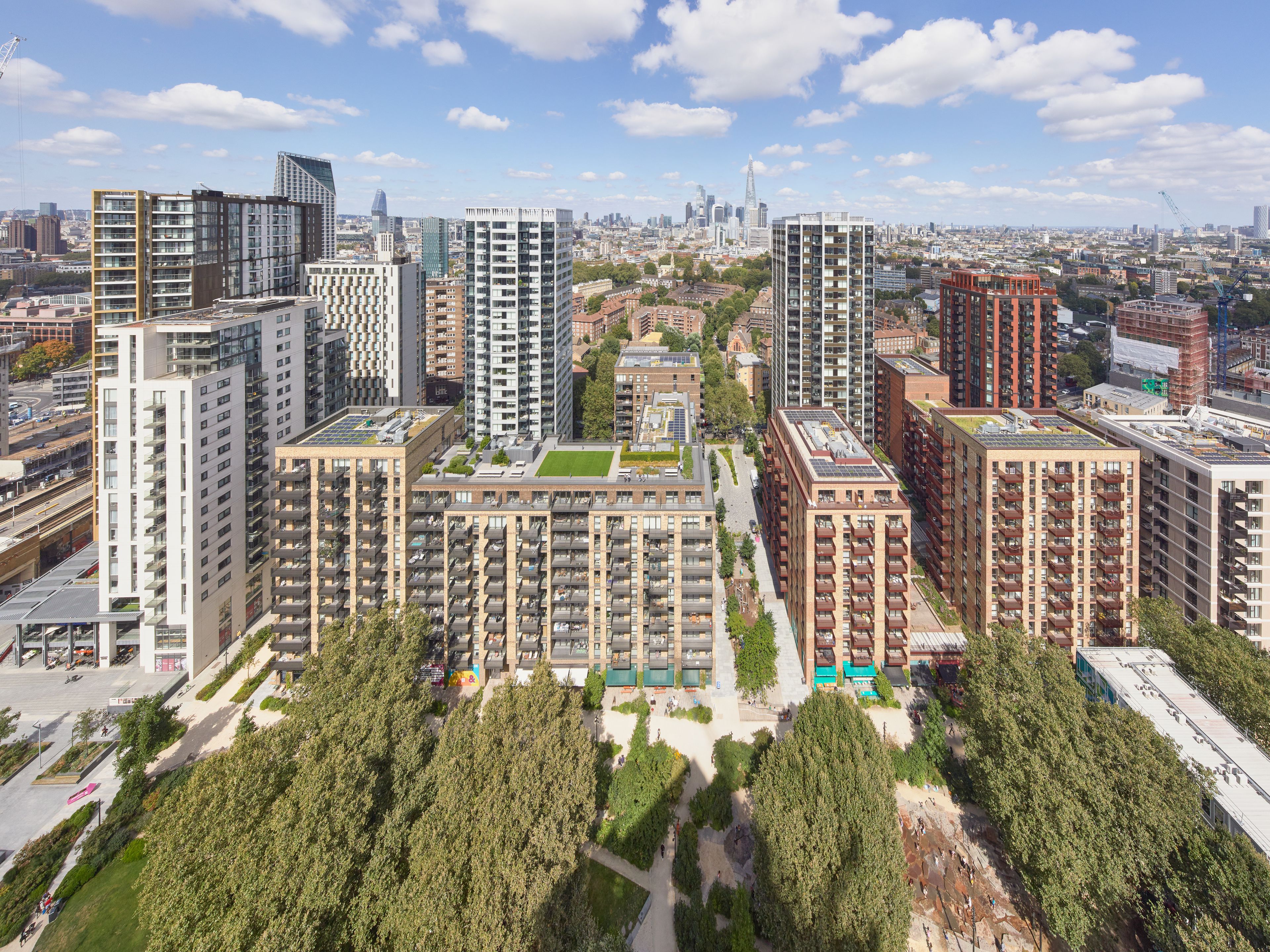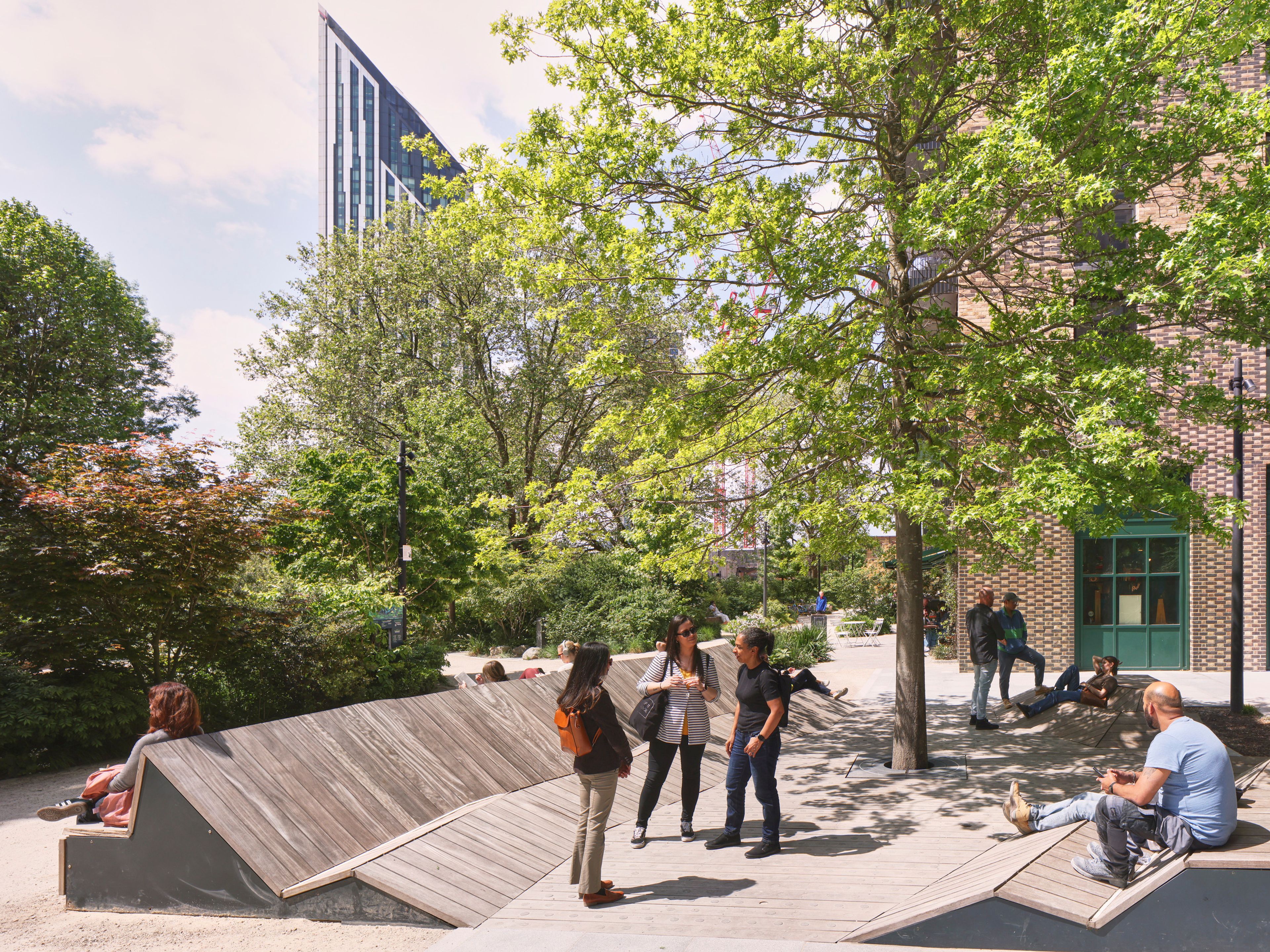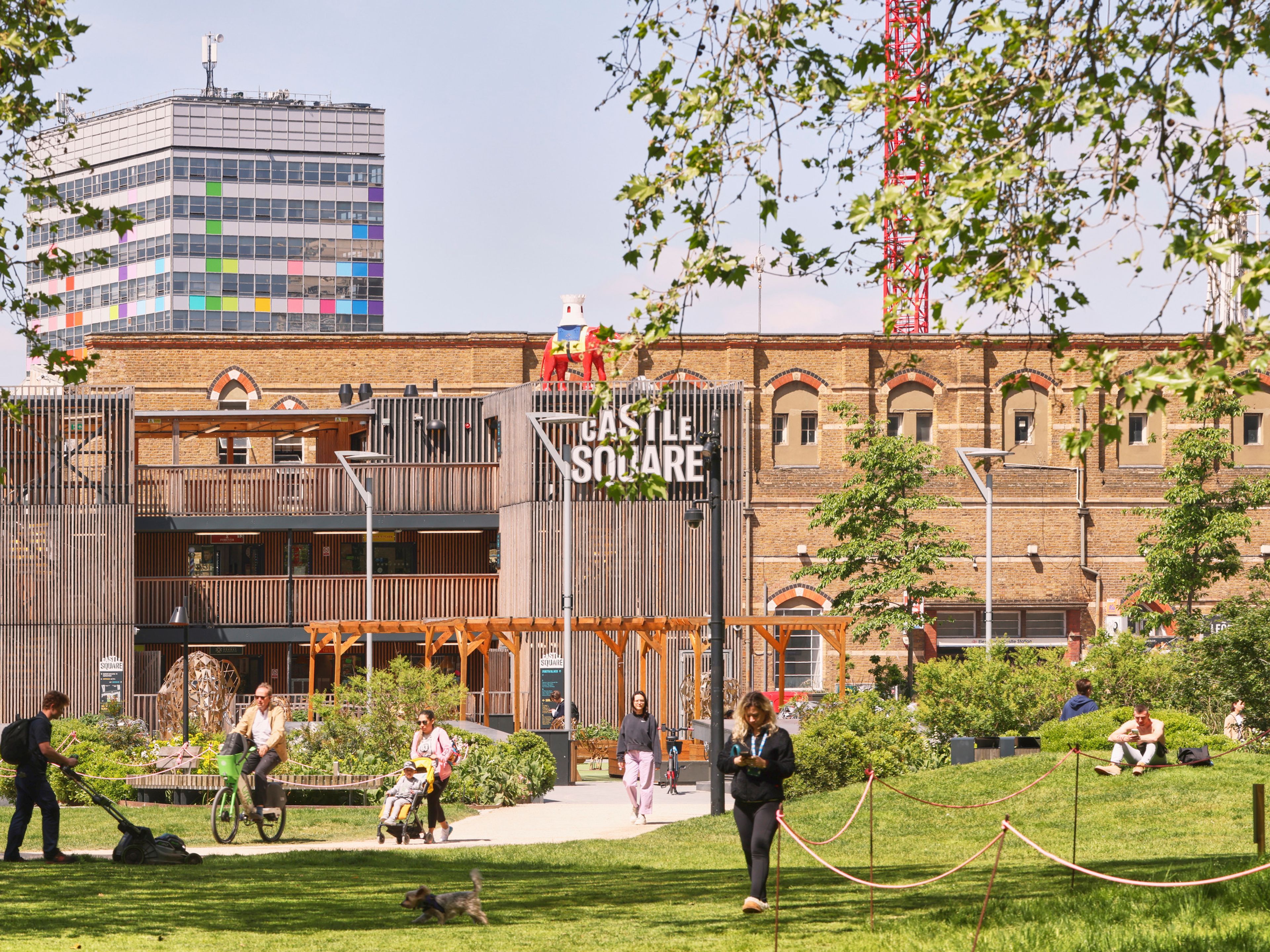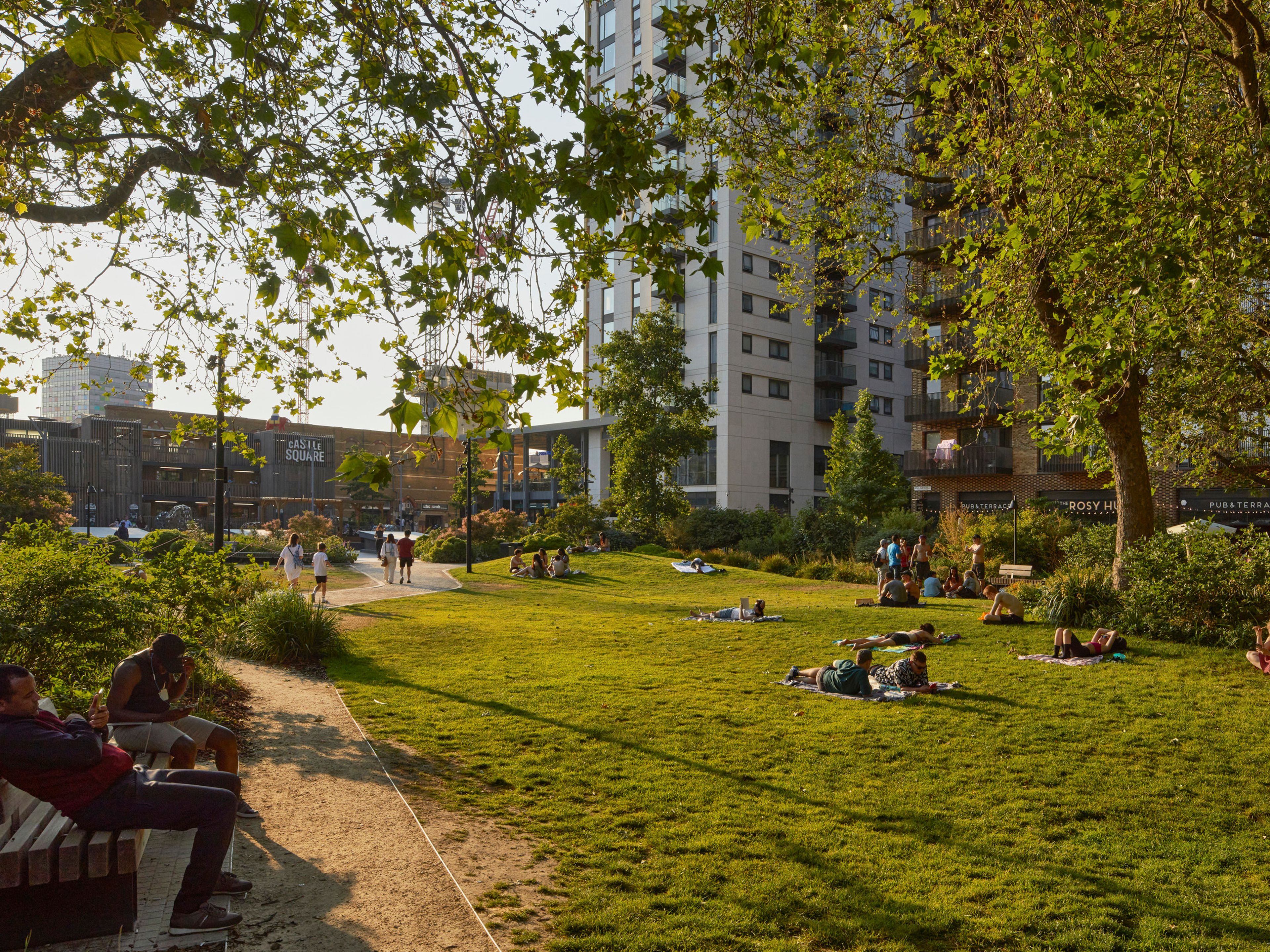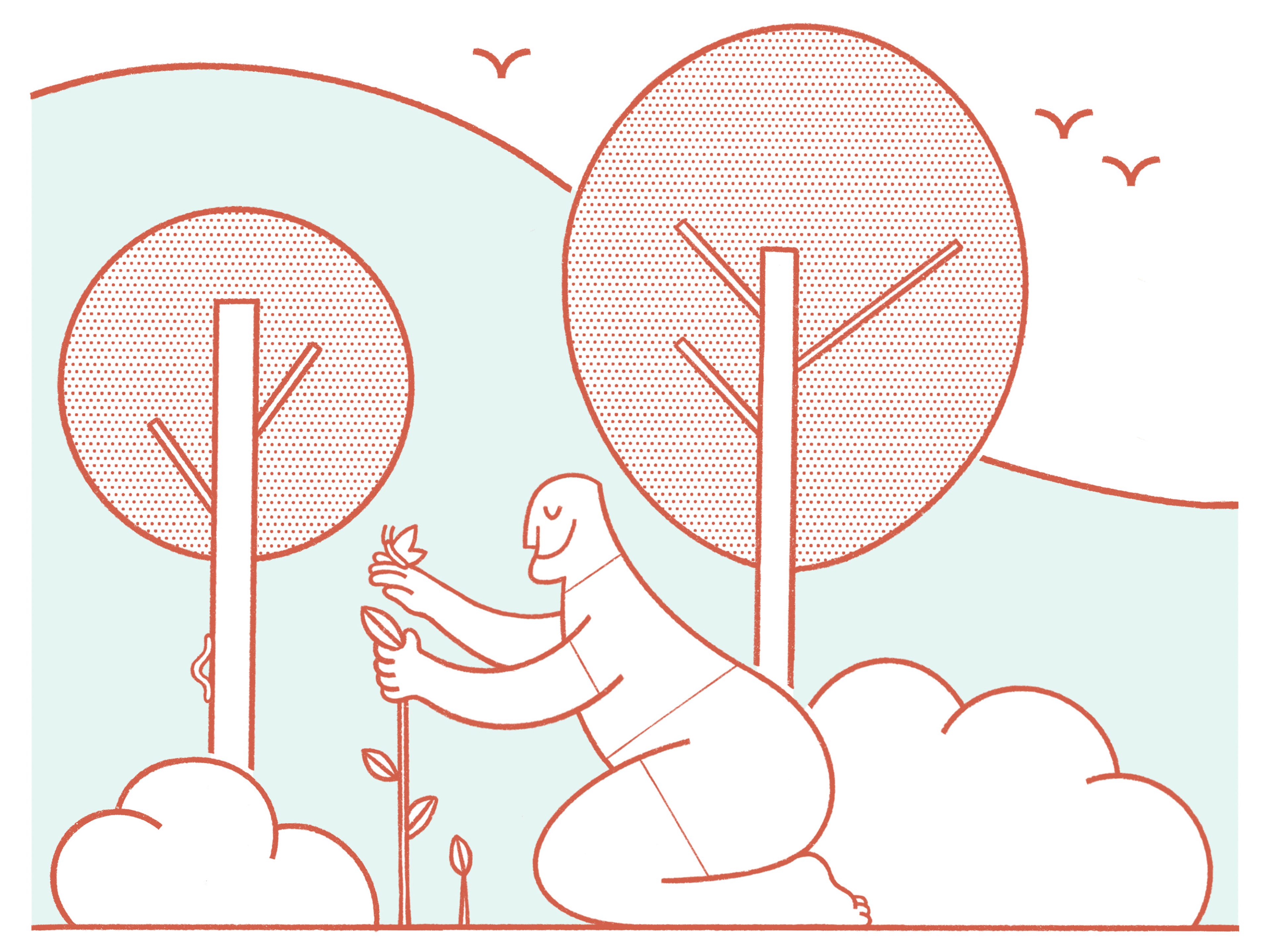Q&A with Angela Brennan, Lendlease

Angela Brennan
Elephant Park Project Lead at Lendlease
“You definitely notice the respite stepping off the main road and into the park. You have to remind yourself that you are in zone 1. That liveability is quite key.”
Over the past ten years, London’s Heygate Estate in Elephant and Castle has transformed enormously. Make and developer Lendlease have worked with the community to craft a permeable, integrated place where everyone is welcome – residents old and new, local businesses, Londoners and visitors alike.
The centrally located park, which brings nature and wildlife to this busy urban area, is a major draw. Elephant Park is home to new community spaces, including Elephant Springs, an innovative waterscape and multigenerational play area.
Due to complete in 2027, Elephant Park will be net zero in operation, a commitment Lendlease made when it secured outline planning consent back in 2013. Here Angela Brennan, Elephant Park Project Lead at Lendlease, discusses the ambition behind the masterplan and how its carbon and biodiversity initiatives are setting new benchmarks for sustainable urban regeneration.
The masterplan has transformed Elephant and Castle into a diverse, liveable and well-connected urban neighbourhood that belongs to all Londoners. How was this achieved?
Angela Brennan: Key for Elephant Park is the broader community engagement, which has continued throughout the development. We established a park action group that we consulted regularly to help evolve the interim phases. The design of the place is inclusive and reflective of the area – an asset to the local community and London more generally.
Permeability and green links have been important to make people feel invited and grant them permission to enter. Other elements, like Elephant Springs, create a destination that becomes quite iconic and a lovely place to be. There's so much to see and do and engage with. That's what’s made Elephant Park a place for everyone, not just for the new residents. Given the strength of the community that existed here before and that continues to remain here, we want to create something for everyone.
You definitely notice the respite stepping off the main road and into the park. You have to remind yourself that you are in zone 1. That liveability is quite key.
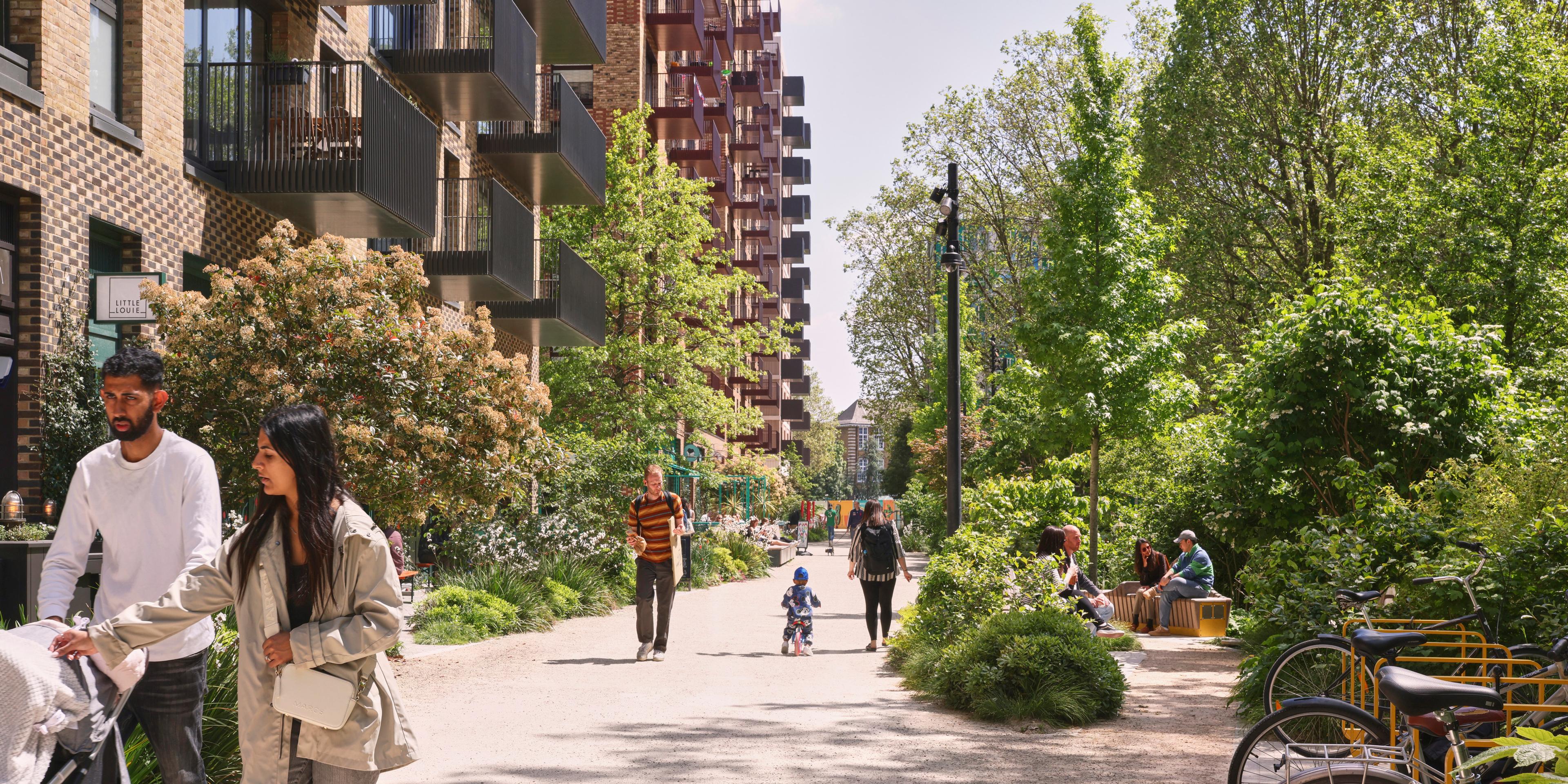
Pedestrian boulevard along Ash Avenue.
Elephant Park is walkable, with a strong focus on sustainable movement. How has this changed its character?
AB: Some of the early plots have basement car parking, but those delivered now have none, other than blue badge and accessible spaces. That is reflective of the way London has developed and the zone 1 location. When the original masterplan was created, Ash Avenue, the retail and dining street adjacent to the park, was a vehicular street, but that design evolved through broader engagement into a pedestrian street. We've really tried to stretch the park up to the buildings, and that has shifted the place towards being walkable and accessible.
Has it also made the place more convivial and lively?
AB: Oh, absolutely. Walking along Ash Avenue, it’s hard to imagine cars traveling down there. It has softened the place.
Lendlease put an extensive biodiversity strategy in place to restore nature and improve air quality. How has this been achieved?
AB: Biodiversity was a core part of Elephant Park right from the outset, being anchored by the park itself. Many of our buildings have green roofs, and there's a lot of wild planting and wildflower meadows. We have incorporated broader habitat promotion opportunities – things like bug hotels and clusters of timber – to allow various habitats to establish.
The green infrastructure and the tree strategy have been fundamental. As well as retaining 128 mature trees, we planted another 1,300, resulting in no net loss of tree cover and a net gain in biodiversity.
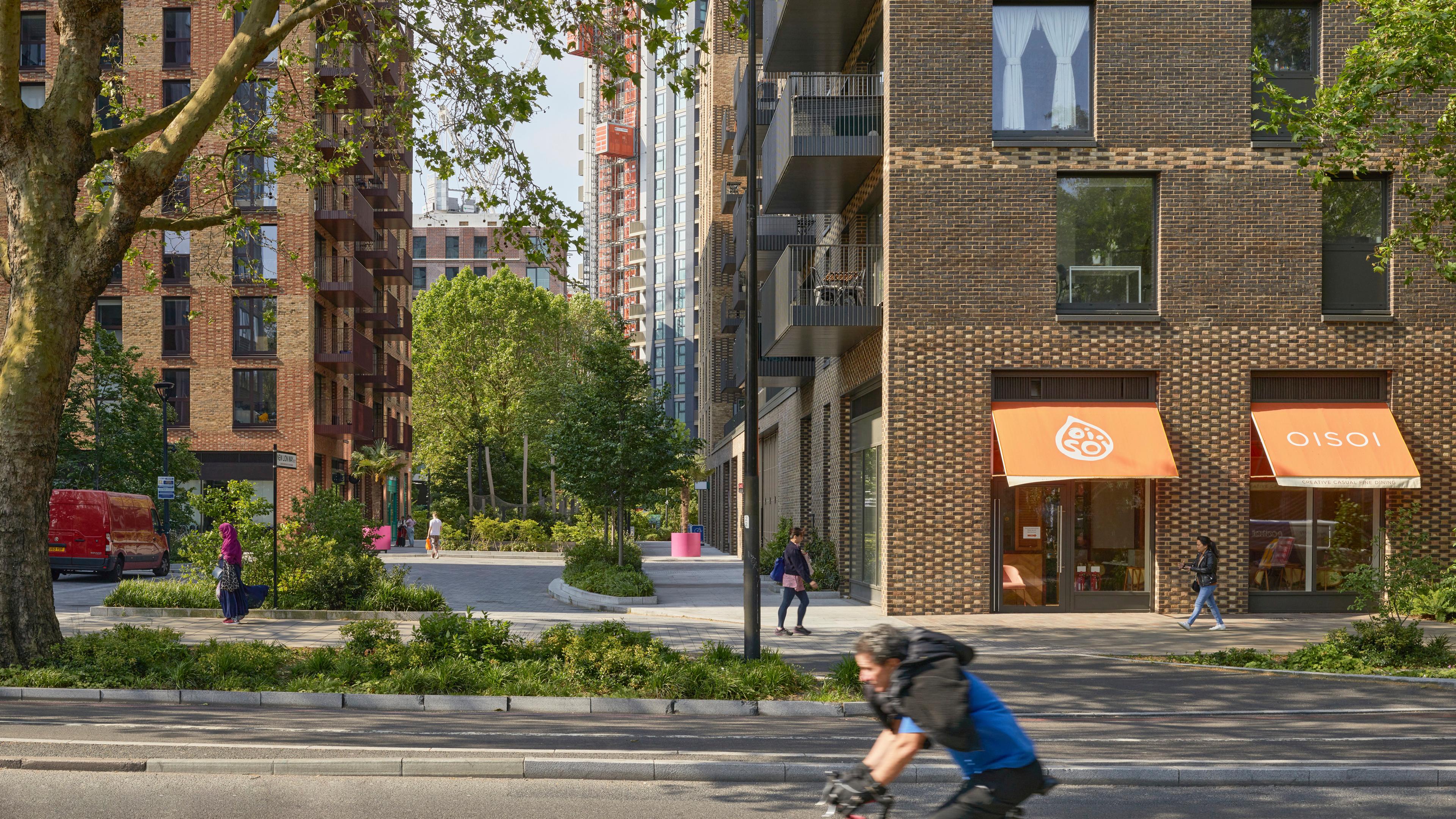
Curated retail mixing local retailers, start-ups and more.
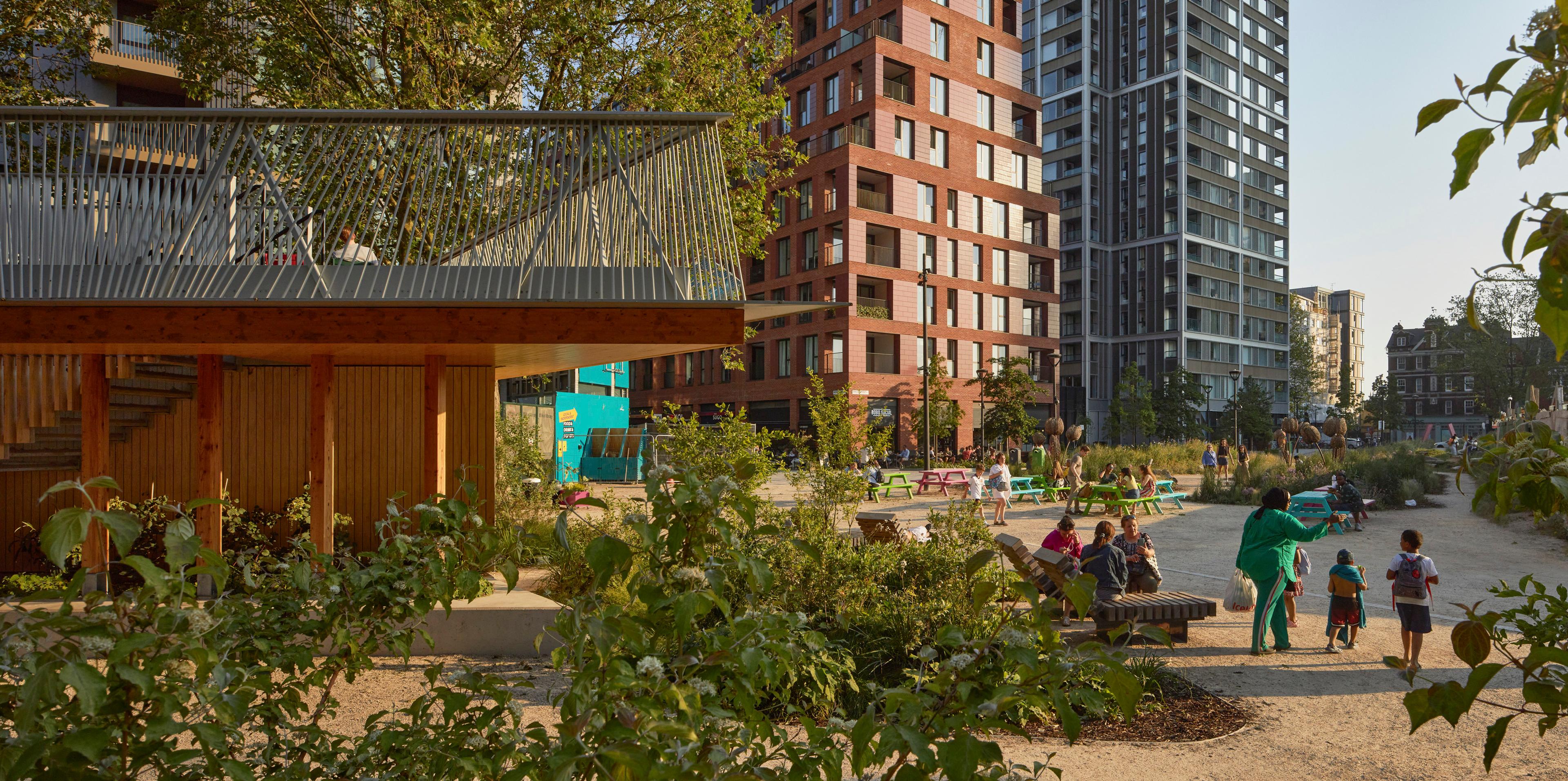
A net zero carbon development in operation.
What are the key initiatives of your carbon neutrality agenda?
AB: At the outset, we committed to Elephant Park being a net zero carbon development in operation, which has manifested through the biodiversity and greening initiatives. We have a district heat network that provides net zero heat and hot water to the development, with capacity to extend to another 1,000 homes or so. We have eliminated all use of diesel, which is key to reducing emissions.
On the plot that we're currently constructing, we're using reduced-carbon concrete, removing the cement from the mix and using recycled aluminium on the facade; and our design for an office building incorporates timber in the construction.
Another key element is the socioeconomics – looking at jobs and construction skilling, and social return on investment. From 2016 to 2021, we generated £36 million worth of value, so for every pound invested, £6 of value was returned.
This is one of the big successes. It's not just about the physicality but the legacy that is created through social value.
The park’s retail offering is a careful curation of local businesses. How have you worked with existing businesses to create that blend and support the local economy?
AB: Our strategy has focused on incorporating local retailers, start-ups and smaller retailers. A meanwhile space called Artworks, for example, functioned as a shipping container incubation space that enabled a local business community to establish itself, become successful and take units permanently.
Of the 13,000m2 of retail space, which comprises 50 units across 4 retail areas, approximately 10% is offered at an affordable rent to local independent retailers. That's been hugely successful and means that the retail mix creates a destination with a strong connection to the community.
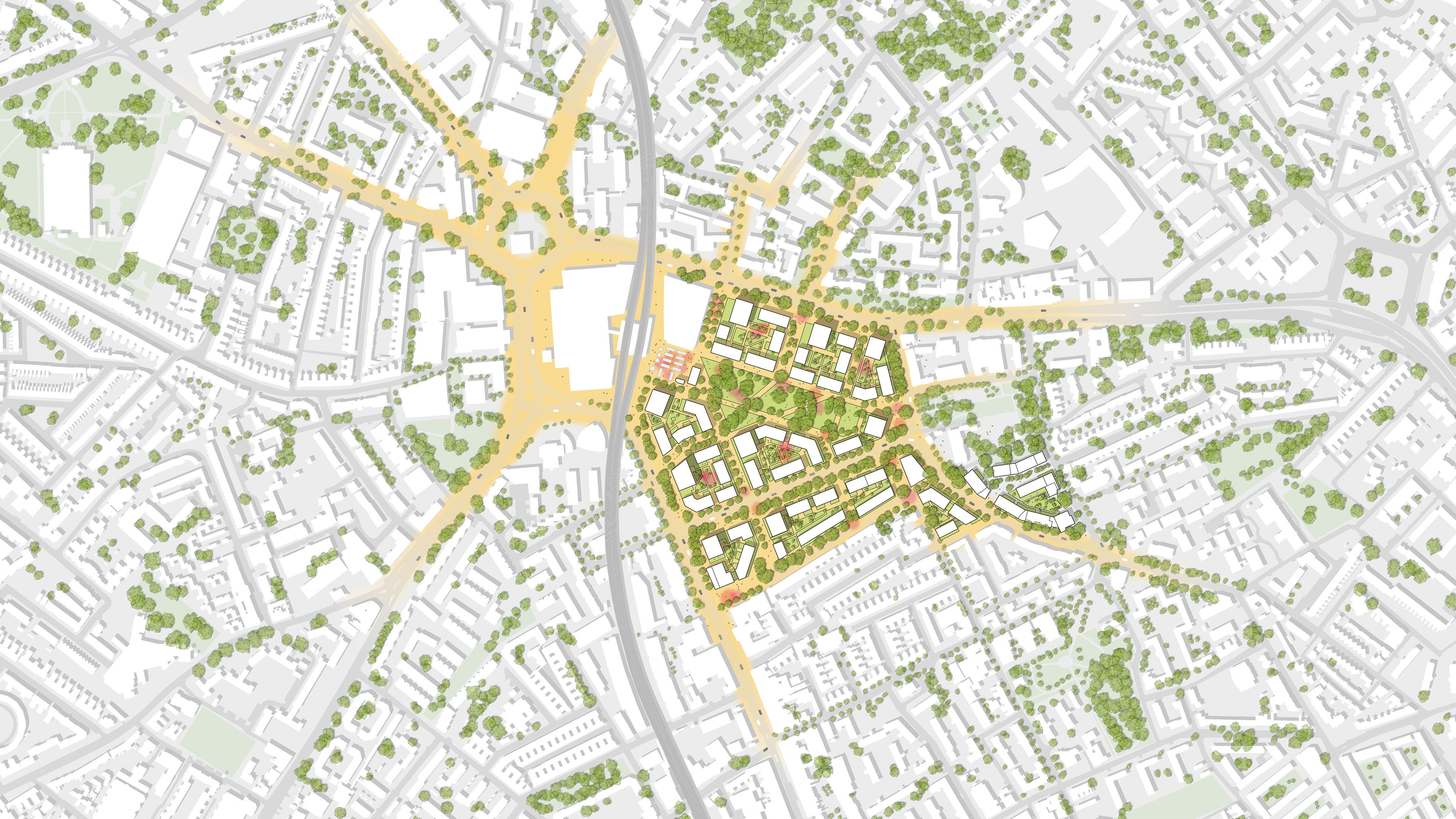
Tags
Authors
Angela Brennan has been part of Lendlease’s Elephant Park project since 2019, leading the delivery of this £2.5 billion regeneration project in partnership with Southwark Council. During her 22 years at Lendlease, she’s worked across Australia and the UK on range of major projects, and held corporate roles within HR, marketing and operations.
